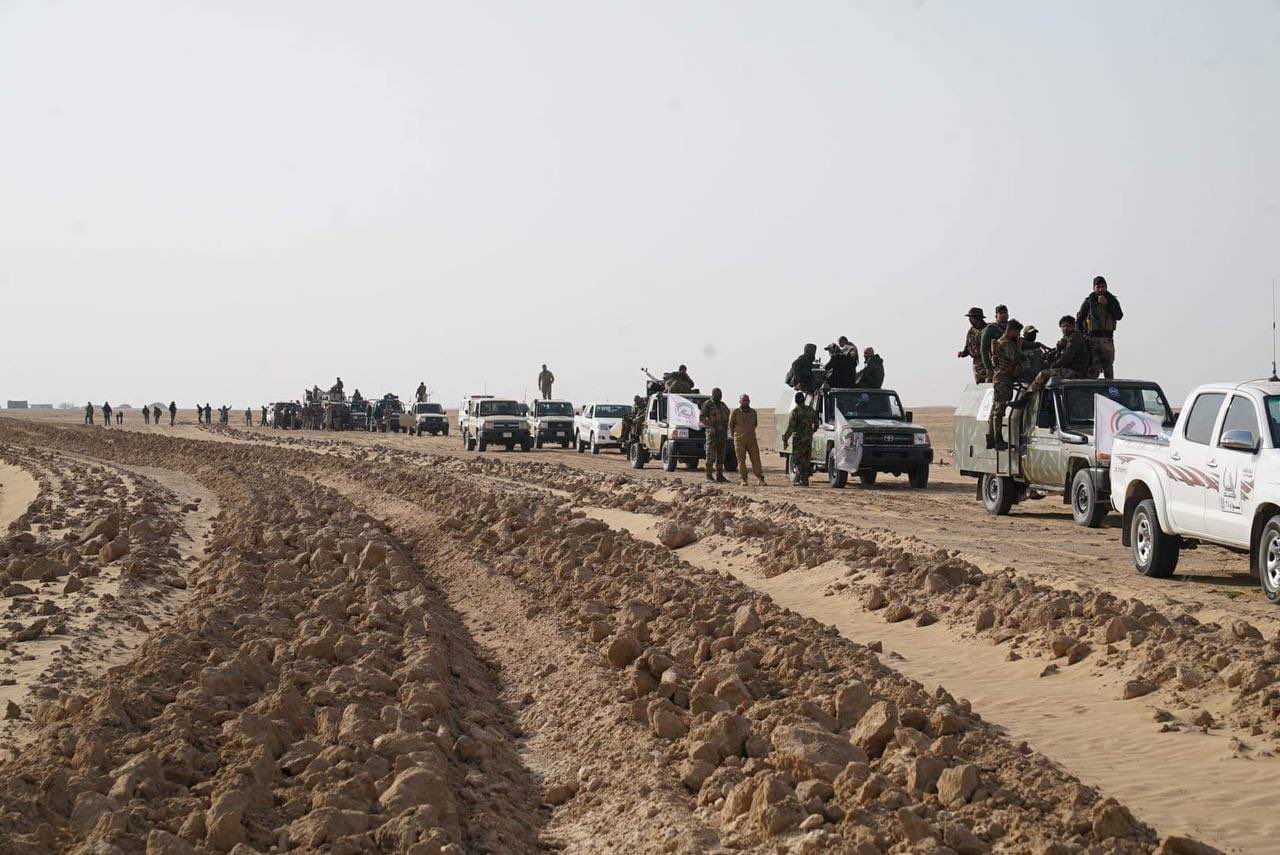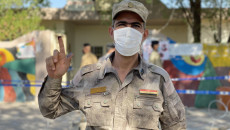The Iraqi civilian authorities and armed forces struggled to maintain order within the country, however, it did not maintain effective control over some elements of the security forces, a report by the United States’ department of state says.
The report criticizes the two main Kurdish parties, the Kurdistan Democratic Party KDP and the Patriotic Union of Kurdistan PUK, as each maintain an independent security apparatus while the federal constitution, gave the Kurdistan Regional Government KRG the right to maintain internal security forces.
Iraq section of the Country Reports on Human Rights Practices: Iraq in 2021, by the Bureau of Democracy, human rights and labor, documented human rights issues based credible reports of: serious restrictions on free expression and media, including violence or threats of violence against journalists, unjustified arrests and prosecutions against journalists; serious restrictions on internet freedom; substantial interference with the freedom of peaceful assembly and freedom of association.
“All popular mobilization units officially report to the chairman of the Popular Mobilization Committee (PMC) and are under the ultimate authority of the prime minister, but several units were in practice also responsive to Iran and its Islamic Revolutionary Guard Corps.”
The report defines the Popular Mobilization Committee as “a state-sponsored umbrella military organization composed of approximately 60 militia groups, also known as Popular Mobilization Forces (PMF- Al-Hashid al-Shabi), part of the Iraqi Security forces (ISF) and receive funding from the government’s defense budget.”
PMF units are under the ultimate authority of the prime minister, but several units were in practice also responsive to Iran and its Islamic Revolutionary Guard Corps
Following October 2019, the new Prime Minister Mustafa al-Kadhimi, previously acting head of intelligence service, has come to office in May 2020 yet failed to curb the rise and influence of pro-Iran paramilitary groups.
“The government, including the Office of the Prime Minister, took some steps to identify, investigate, and prosecute, but rarely punished, those officials responsible for perpetrating or authorizing human rights abuses,” the report says about state attempts to restore rule of law.
According to the Iraqi High Commission for Human Rights (IHCHR), 591 protesters were killed, and 20,000 or more injured from October 2019 until the end of May. For the same period, the IHCHR stated 54 protesters were still missing and that there were 86 attempted killings of activists, 35 of which were carried out successfully.
Human rights organizations reported that Iran-aligned PMF militia groups engaged in killing, kidnapping, and extortion throughout the country, particularly in ethnically and religiously mixed provinces, the report indicates.
The government took some steps.. but rarely punished those officials responsible for perpetrating or authorizing human rights abuses
On May 9, unidentified gunmen “purportedly from PMF militias shot and killed prominent activist and protest movement leader Ehab al-Wazni near his home in Karbala.”
The report shows that KDP and PUK have not finalized unifying the armed forces under the KRG as both keep Peshmerga, Asayish and even provincial police under their control yet nominally under KRG security forces.
“KDP and PUK separately control additional Peshmerga military units, as well as separate police forces under nominal Kurdistan Regional Government Ministry of Interior control…. each maintain Asayish (security) forces, and separate intelligence services.”
Regarding the standing threats by the Islamic State in Iraq and Syria, the US department of State believes, “despite a reduction in numbers, ISIS continued to commit serious abuses and atrocities, including killings through suicide bombings and improvised explosive devices.”
“The security situation remained unstable in many areas due to intermittent attacks by ISIS and its affiliated cells; sporadic fighting between the Iraqi Security Forces (ISF) and ISIS strongholds in remote areas; the presence of militias not fully under the control of the government, including certain PMF units; and sectarian, ethnic, and financially motivated violence.”
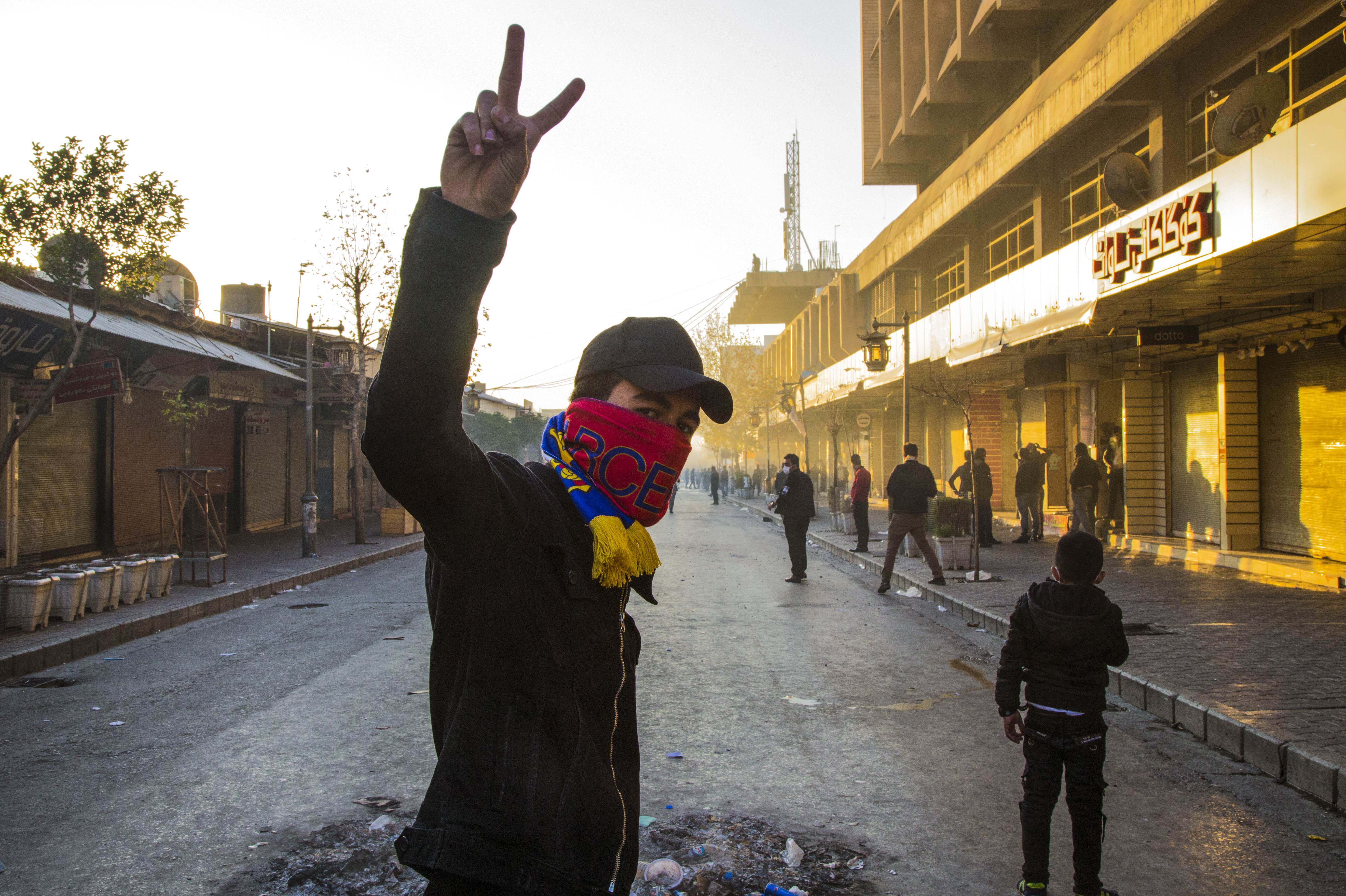
Addressing the disputed territories, the report concludes that “poorly defined administrative boundaries and disputed territories between the Iraqi Kurdistan Region and the central government led to confusion over the jurisdiction of security forces and the courts.”
The security situation remained unstable in many areas due to intermittent attacks by ISIS and its affiliated cells
IS sleeper cells and militants are regrouping in the rural areas of the disputed territories between Baghdad and Erbil. They are targeting Iraqi forces and civilians in the suburbs of Kirkuk, Diyala, Ninawa, Salahaddin and Erbil.
The disputed territories consist of 14 administrative districts spread across the four provinces of Kirkuk, Ninewa, Diyala and Salahaddin.
The section about torture, cruel, inhuman, degrading treatment and punishment states, “Numerous reports from local and international nongovernmental organizations (NGOs) indicated that government officials employed torture and other cruel, inhuman, or degrading treatment or punishment.”
“Federal Police, Popular Mobilization Forces, and certain units of Kurdistan Regional Government (KRG) Asayish internal security services, operated with impunity.”
The Independent Human Rights Commission Kurdistan Region (IHRCKR) reported in September that the Erbil Correctional Center, for example, which was built to house 900 detainees, held 1,875 inmates. In some detention centers and police-run jails, KRG authorities occasionally held juveniles in the same cells as adults.
The US state department quotes reports by the United Nations Assistance Mission for Iraq (UNAMI) in August and December that some IKR prisons failed to respect basic standards and procedural safeguards and that the mechanisms in place to receive complaints of torture did not appear to be effective or to provide remedy.
Regarding arbitrary arrest and detention, “there were reports of Iran-aligned PMF groups also arbitrarily or unlawfully detaining Kurds, Turkmen, Christians, and other members of minority groups in Ninewa Province.”
Human rights organizations reported frequently that KRG authorities arbitrarily detained journalists, activists, and protesters. These detentions included individuals who came to be known as the Badinan detainees, arrested in Duhok Province in 2020 for exercising their right to freedom of expression.
Many were denied access to their lawyers and were not informed of the charges against them, nor were their families informed of their whereabouts in a timely manner. Many of those arrested were held in detention for lengthy periods without being brought before a judge, in violation of the law, only to be released without charges.
KRG authorities arbitrarily detained journalists, activists, and protesters
Badinan detainees, few of them tried and freed up today, are victims of a wave of arrests carried out by the Asayish since June 2020 in response to a series of major protests against delay in salaries of state employees, KRG handling of the economic crisis resulting from disputes with Baghdad over oil production, export and corruption, and reached its peak under the Covid-19 pandemic.
In February 2021, Erbil court sentenced five journalists and civil activists from Erbil and Duhok for charges of "spying and attempts of coup d'eta and disorder, attorney said in a press conference on Tuesday.
In June 2021, the penal panel two of Iraqi Kurdistan Appellate Court in Erbil has issued its final verdict unanimously, confirming the court ruling of six-years-in-prison for freelance journalists Sherwan Sherwani, Guhdar Mohammed Zebari, and civil society activists Ayaz Karam, Hariwan Essa & Shivan Sa'id.
Last February, Nechirvan Barzani, the president of Iraqi Kurdistan Region IKRP, has reduced the conviction sentence for 5 of Badinan detainees from 6 years to two years and half, expected to be released after four months, attorney said.
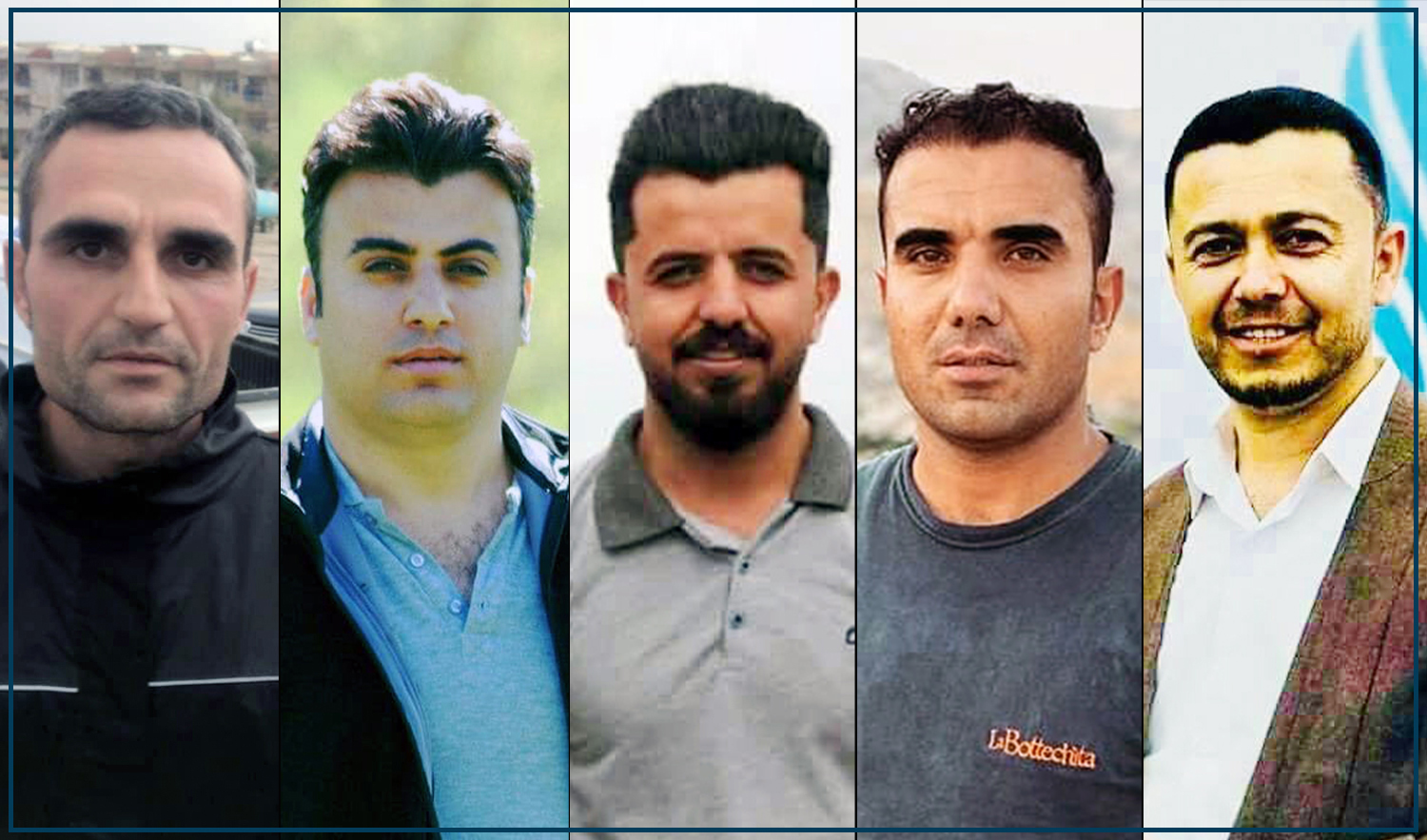
UNAMI and OHCHR observed the two-day trial and reported serious concerns that basic international fair trial standards were not respected during the hearing. All five defendants alleged in court that Asayish extracted their confessions under torture, but the trial judge dismissed these allegations without further examination.
UNAMI and OHCHR observed the two-day trial and reported serious concerns that basic international fair trial standards were not respected during the hearing
Defense counsel also told the court it was not given adequate time to prepare for trial and had no opportunity to access and review key evidence against the defendants provided by secret informers or to challenge that evidence through cross-examination or by presenting rebuttal evidence.
According to one NGO, as of December at least another 34 Badinan-related activists remained in custody with no scheduled court date and many without formal charges.
A report by Human Rights Watch HRW early 2022 named “Iraq events 2021,” confirmed the findings of the US report about 2021 human rights abuses in Iraq.
“In 2021, the government failed to deliver on its promises to hold to account those responsible for the arbitrary arrests, enforced disappearances, and extrajudicial killings of protesters, activists, journalists, and others openly critical of political and armed groups in the country.”
For pretrial detention, there were reports of detention beyond judicial release dates and unlawful releases. In May a local human rights organization reported that PMF-affiliated militias ran two makeshift detention facilities in Diyala and Salah al-Din Provinces, reportedly holding more than 7,000 ISIS-related detainees without due process or judicial review.
KRG authorities also reportedly held detainees for extensive periods in pretrial detention. KRG officials noted prosecutors and defense attorneys frequently encountered obstacles in carrying out their work.
According to the IHRCKR, some detainees remained in KRG internal security service facilities for extended periods even after court orders were issued for their release.
IHRCKR recorded arrest of 300 people from August to October 2020 for "organization of protests and disorder mainly in Duhok northern province. More than 50 are still in prison.
The KRG has sent over 50 activists and journalists to court in 2020 and 2021 and some of the cases are still pending at court awaiting trial.
Last March, the Iraqi parliament passed the Yezidi Survivors’ Law which established a new Survivors’ Directorate at the Ministry of Labor and Social Affairs. The Survivors’ Directorate is mandated to provide psychosocial support and restitution to victims of ISIS. As of October 1, the government had neither fully funded nor issued implementing regulations for the directorate.
In terms of property seizure, the Iraqi Commission of Integrity (COI) in June announced that the Integrity Investigation Court in Ninewa ordered the freezing of 844 state land assets that were illegally seized or allocated to various parties until an investigation of their status was completed. There was no information available on the status of the investigation.
Integrity Investigation Court in Ninewa ordered the freezing of 844 state land assets that were illegally seized or allocated to various parties
In May the mayor of Mosul City, Zuhair al-Araji, asked the Police Directorate in Mosul to take legal action against four members of Asa’ib A’hla al-Haq (AAH) who worked in the AAH Economic Office in Mosul, on charges of bulldozing and seizing a plot of land for the purpose of selling it; however, the Police Directorate took no action.
Despite its territorial defeat in 2017, ISIS remained a major perpetrator of abuses and atrocities. The remaining fighters operated out of sleeper cells and strike teams that carried out sniper attacks, ambushes, kidnappings, and killings against security forces and community leaders. These abuses were particularly evident in Anbar, Baghdad, Diyala, Kirkuk, Ninewa, and Salah al-Din Provinces. On March 13, ISIS claimed responsibility for killing seven members of a single family in the Albu Dor region south of Tikrit in Salah al-Din Province.
Government forces, including the ISF and PMF, established or maintained roadblocks that reportedly impeded the flow of humanitarian assistance to communities in need, particularly in disputed territories such as the Ninewa Plain and Sinjar in Ninewa Province.
In May Special Adviser Karim Khan presented to the UN Security Council that Team to Promote Accountability for Crimes Committed by Da’esh/ISIL UNITAD had established “clear and convincing evidence” that the crimes committed by ISIS against the Yezidis constituted genocide. UNITAD reported that ISIS was “responsible for acts of extermination, murder, rape, torture, enslavement, persecution, and other war crimes and crimes against humanity perpetrated against the Yezidis.”
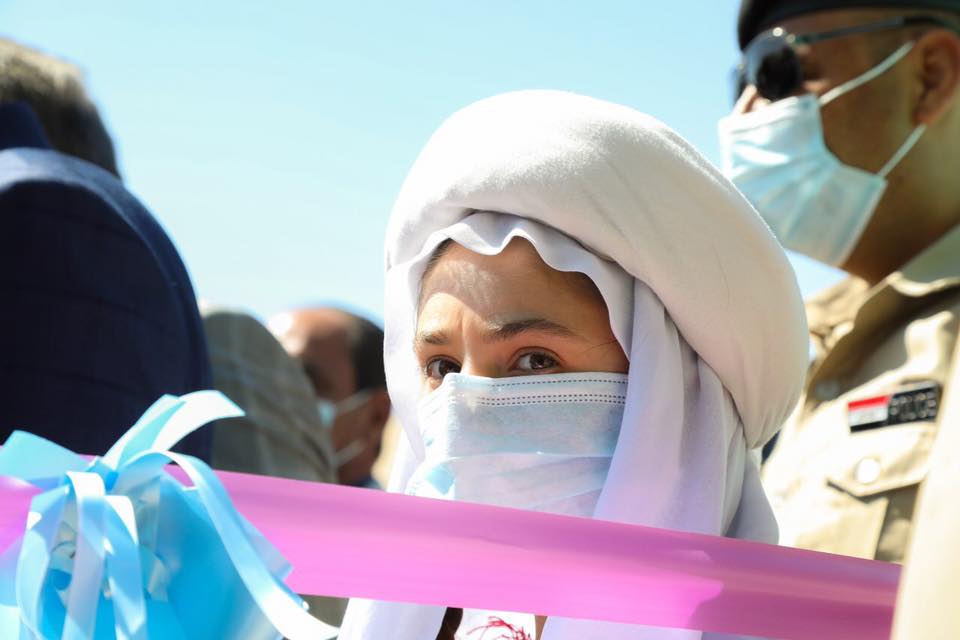
The general director of mass graves at the IKR Ministry of Martyrs and Anfal Affairs confirmed in a public statement on December 8 that there were 90 mass graves in the Sinjar region. UNITAD-supported exhumation and identification activities continued throughout the year.
the crimes committed by ISIS against the Yezidis constituted genocide
Ezidis (Yezidis, Yazidis) are an ethno-religious minority over half a million people, mostly residing in Shingal, in northern Iraqi province of Nineveh. The militants of Daesh/ISIS extremist group in 2014 attacked their communities, killing over thousand men and taking thousands of women and children as sex slaves, in an atrocity the U.N. said it has amounted to genocide.
Coming to freedom of press, the KRG’s Kurdistan Democratic Party (KDP) and Patriotic Union of Kurdistan (PUK) prioritized access to the outlets they owned. In KDP strongholds, Kurdistan Television, Rudaw, and K24 had access to all public places and information, while in PUK-dominated Sulaymaniyah Province, Kurdsat News and GK Television enjoyed the same privilege. Conversely, outlets belonging to opposition parties or lacking party affiliation had limited access to public information in the IKR.
The report has found out that there were cases of internet censorship as well.
Civil society organizations reported their activists’ social media pages were monitored by government and militia forces, and that the activists faced harassment or criminal charges filed against them based on what they posted on Facebook and other social media platforms.
For example, on November 16, the Kirkuk Province misdemeanor court charged Hazhar Kakai, a lawyer and a human rights advocate, 510,000 Iraqi Dinars IQD ($350) for a Facebook post allegedly describing the acting governor of Kirkuk Rakan al-Jabouri as a Baathist.
The freedom of peaceful assembly was violated, especially in the IKR.
In June Amnesty International reported its investigation of 14 out of the more than 100 cases from the IKR’s Duhok Province known as the Badinan detainees. Observers alleged the detainees were arbitrarily arrested between March and October 2020 by Asayish and Parastin forces (Kurdistan Democratic Party intelligence) in connection with their participation in protests, criticism of local authorities, or journalistic work.
https://www.state.gov/reports/2021-country-reports-on-human-rights-practices/iraq

